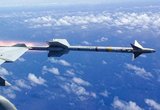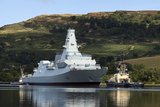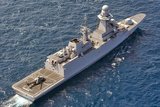US Navy to commission LCS 18
The US Navy is set to commission its eighth Independence-variant Littoral Combat Ship (LCS), the future USS Charleston (LCS 18), at Columbus Street Terminal in Charleston, South Carolina, on 2 March.
The ship will be homeported in San Diego, California.
The future USS Charleston has been designed to support operations in near-shore environments as well as in the open ocean. The vessel is capable of countering asymmetric anti-access threats such as mines, quiet diesel submarines and fast surface craft.
The LCS class consists of two variants, the Freedom variant and the Independence variant, designed and built by two industry teams. The Independence variant team is led by Austal USA, Mobile, Alabama.
More from Naval Warfare
-
![Turkey targets Italian market with strategic partnership on USVs and hybrid platforms]()
Turkey targets Italian market with strategic partnership on USVs and hybrid platforms
Havelsan, VN Maritime and Piloda Defence will collaborate to develop and integrate a range of maritime solutions with a view to secure a first procurement contract in Italy in the first half of this year.
-
![Could Asia and the Middle East offer growth opportunities for Italy’s Fincantieri?]()
Could Asia and the Middle East offer growth opportunities for Italy’s Fincantieri?
Export campaigns for Fincantieri’s submarines and frigates are central to the company’s ambitions as billions of dollars in unawarded contracts come into focus.
-
![US Navy to develop an undersea networking capability to support UUV operations]()
US Navy to develop an undersea networking capability to support UUV operations
The NEREUS project aims to enhance and expand the US Navy’s existing communications systems, enabling crewed/uncrewed seabed and subsurface missions.






















